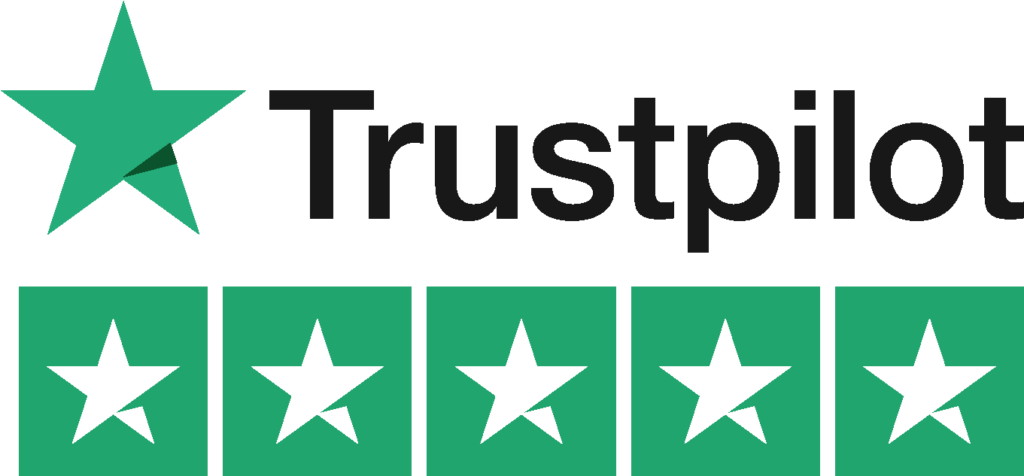As an immigration lawyer, your website is a crucial tool for attracting new clients and building your practice. However, in order to be effective, your website needs to be visible to the right audience. This is where search engine optimization (SEO) comes in.

By optimizing your website for search engines, you can improve your visibility and attract more qualified leads. In this blog post, we will be discussing various strategies and techniques for maximizing your visibility and attracting qualified leads through SEO.
From keyword research and on-page optimization to off-page optimization and measuring success, we will cover everything you need to know to improve your search engine rankings and drive more traffic to your website.
Whether you’re new to SEO or looking to take your efforts to the next level, this guide will provide valuable insights and actionable steps for improving your website’s performance.
Keyword Research
Keyword research is an essential step in any SEO campaign, as it helps you identify the keywords and phrases that potential clients are searching for when looking for an immigration lawyer. By targeting the right keywords, you can optimize your website’s content and meta tags to improve your visibility in search engine results and attract more qualified leads.
Here’s an example of how to conduct keyword research for an immigration lawyer:
- Identify your target audience: As an immigration lawyer, your target audience will likely include individuals and businesses seeking help with immigration-related issues such as visas, green cards, and citizenship.
- Use keyword research tools: There are several keyword research tools available, such as Google Keyword Planner, SEMrush, and Ahrefs, that can help you identify relevant keywords and phrases.
- Generate a list of keywords: Once you have identified your target audience, use keyword research tools to generate a list of relevant keywords and phrases.
These might include “immigration lawyer,” “visa lawyer,” “green card lawyer,” “citizenship lawyer,” “immigration attorney,” “immigration services,” and so on. - Analyze search volume and competition: After generating a list of keywords, use keyword research tools to analyze their search volume and competition. Look for keywords with high search volume and low competition.
- Prioritize your keywords: Once you have analyzed your keywords, prioritize them based on their relevance, search volume, and competition.
- Optimize your website: Once you have identified and prioritized your target keywords, you can use them to optimize your website’s content and meta tags. This will help search engines understand what your website is about and how it should be indexed.
For example, an immigration lawyer in New York City might use keyword research to identify keywords such as “immigration lawyer NYC,” “visa lawyer New York City,” “green card lawyer NYC,” and “citizenship lawyer New York City.”
They would then optimize their website’s title tags, meta descriptions, and content to include these keywords and target individuals and businesses searching for immigration services in New York City.
On-Page Optimization
On-page optimization is the process of optimizing individual web pages in order to rank higher and earn more relevant traffic in search engines. It involves making changes to the content and structure of your website to make it more search-engine friendly.
Here’s an example of how an immigration lawyer might optimize a webpage for on-page SEO:
- Title tags: The title tag is one of the most important on-page SEO elements, as it tells search engines what the page is about. The title tag should be unique to each page, be less than 60 characters, and include the target keywords. For example, “Immigration Lawyer NYC – Visa, Green Card and Citizenship Services”
- Meta descriptions: Meta descriptions are the short summaries that appear under the title tag in search engine results. They should be between 150-160 characters and include the target keywords. For example, “Leading immigration lawyer in NYC, specializing in visa, green card and citizenship services. Contact us today for a consultation.”
- Headings: Headings help organize your content and make it easier for search engines to understand the structure of your page. Your main heading should include the target keywords and be an H1 tag. For example, “Immigration Services in NYC – Visa, Green Card, and Citizenship Help”
- Content: Your content should be high-quality, unique, and relevant to your target keywords. It should also be at least 800 words in length. For example, an article discusses the various immigration services offered by the law firm, such as the different types of visas available, the process of obtaining a green card, and the requirements for citizenship.
- URLs: Your URLs should be short and include the target keywords. For example, “https://www.examplelawfirm.com/immigration-services-nyc“
- Internal linking: internal linking is the process of linking to other pages on your website. This helps search engines understand the structure of your website and can also help boost the visibility of your most important pages.
- Images and videos: Images and videos can help make your content more engaging and can also help boost your SEO. Be sure to optimize your images and videos with descriptive, keyword-rich file names and alt tags.
By following best practices for on-page optimization, an immigration lawyer can improve their website’s visibility in search engine results and attract more qualified leads.
Off-Page Optimization
Off-page optimization is the process of optimizing elements outside of your website that can impact your search engine rankings. These elements can include links to your website, social media, and online directories. By implementing effective off-page optimization strategies, you can improve your visibility in search engine results and attract more qualified leads to your immigration law practice.
Here’s an example of how an immigration lawyer might implement off-page optimization strategies:
- Link building: Link building is the process of getting other websites to link to your website. This helps search engines understand that your website is authoritative and relevant.
An immigration lawyer or SEO expert can reach out to other websites in their niche, such as other law firms, legal directories, and immigration-related blogs, and ask for a link back to their website in exchange for a guest post or article. - Social media: Social media can be a great way to promote your website and attract new clients. An immigration lawyer can create a presence on relevant social media platforms such as LinkedIn, Twitter, and Facebook and actively engage with their audience by sharing valuable content, responding to comments and messages, and promoting their services.
- Online directories: Online directories can be a great way to get your website in front of more potential clients. An immigration lawyer can create a listing in relevant directories such as Google My Business, Yelp, and Avvo.
- Encourage customer reviews: Positive reviews from satisfied customers can help boost your visibility in local search results and attract new clients. An immigration lawyer can encourage their clients to leave reviews on their Google My Business listing and other review sites such as Avvo, Yelp, and LinkedIn.
By implementing these off-page optimization strategies, immigration lawyers can improve their website’s visibility in search engine results and attract more qualified leads. It’s important to note that off-page optimization is an ongoing process and requires consistent effort over time to see results.
Optimize for Local SEO
Optimizing for local SEO is an important step for any business that serves a specific geographic area, including immigration lawyers. It helps to increase visibility in local search results and attract more qualified leads from your target area.
Here’s an example of how an immigration lawyer in New York City might optimize their website for local SEO:
- Claim and verify your Google My Business listing: Google My Business is a free listing service provided by Google that allows businesses to manage their online presence across Google, including Search and Maps. By claiming your listing and verifying your business, you can improve your visibility in local search results.
- Build local citations: Local citations are online references to your business, such as your name, address, and phone number. They can include directories, social media profiles, and other online listings. An immigration lawyer in New York City can create a listing in relevant local directories such as the New York State Bar Association and the American Immigration Lawyers Association.
- Optimize your website for local keywords: As an immigration lawyer, you want to make sure your website is optimized for local keywords relevant to your location and services. This can include including your city or state in your title tags, meta descriptions, and content. For example, “Immigration Lawyer NYC – Visa, Green Card, and Citizenship Services.”
- Get listed in online directories: Online directories are a great way to build local citations and get your business in front of more potential clients. An immigration lawyer in New York City can create a listing in relevant directories such as the New York City Bar Association and the New York State Bar Association.
- Optimize images and videos with location keywords: Optimize your images and videos with location-specific keywords in file names and alt tags to help search engines understand where your business is located.
- Encourage customer reviews: Positive reviews from satisfied customers can help boost your visibility in local search results. An immigration lawyer can encourage their clients to leave reviews on their Google My Business listing and other review sites.
Measuring the Success of SEO
Measuring the success of your SEO efforts is crucial for understanding how your website is performing and making data-driven decisions to improve your search engine rankings. Here are a few key metrics to track when measuring the success of your SEO efforts for an immigration lawyer:
- Organic traffic: Organic traffic is the number of visitors that come to your website from search engine results. This metric can help you understand how well your website is ranking and if your SEO efforts are driving more traffic to your site.
- Search engine rankings: Keep track of your website’s rankings for your target keywords on search engines such as Google and Bing. This can help you understand how well your website is performing and identify areas for improvement.
- Bounce rate: A high bounce rate can indicate that your website is not providing the information that visitors are looking for. Monitor your bounce rate to see if there are any changes after you make updates to your website and if there are any changes after you make updates to your website.
- Conversion rate: Your conversion rate is the percentage of visitors who take a desired action on your website, such as filling out a contact form or scheduling a consultation. Track your conversion rate to see if your SEO efforts are leading to more qualified leads.
- Backlinks: Track the number and quality of backlinks to your website to see if your link-building efforts are paying off.
It’s important to monitor these metrics on a regular basis and make data-driven decisions based on the results.
For example, if you notice that your website’s search engine rankings have dropped, you may need to focus on improving your on-page optimization. If your bounce rate is high, you may need to look at ways to improve the user experience on your website.
Additionally, you can use tools like Google Analytics and Google Search Console to track and analyze your website’s performance, as well as monitor your competitors.
By regularly monitoring your website’s performance and making data-driven decisions, you can improve your search engine rankings and drive more qualified leads to your immigration law practice.
Final Thoughts
In conclusion, SEO is an essential tool for any immigration lawyer looking to improve their online visibility and attract more qualified leads.
By conducting keyword research, implementing on-page and off-page optimization strategies, and optimizing for local SEO, you can improve your website’s performance in search engine results and drive more traffic to your site.
It’s important to remember that SEO is an ongoing process, and it takes time to see results. However, by following best practices and continuously monitoring your website’s performance, you can make data-driven decisions to improve your search engine rankings and drive more qualified leads to your immigration law practice.
Additionally, regularly creating quality, keyword-rich content and engaging with your audience on social media and other platforms will also help you stay ahead of the competition and achieve the best possible search engine rankings.
In summary, SEO for immigration lawyers is a process that requires consistent effort, attention to detail, and a solid understanding of the field. By following best practices and continuously monitoring your website’s performance, you can improve your visibility in search results and attract more qualified leads to your immigration law practice.

















